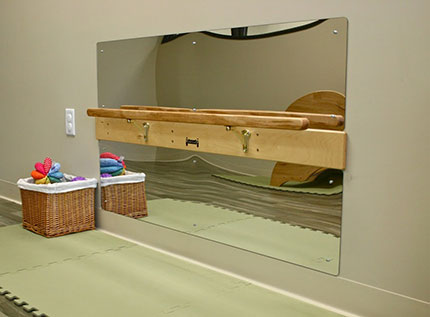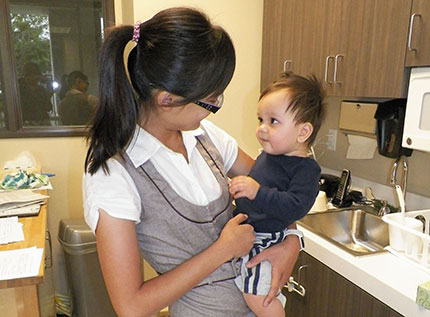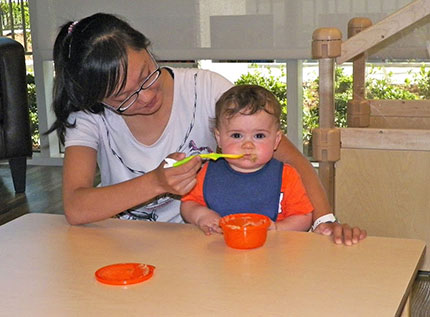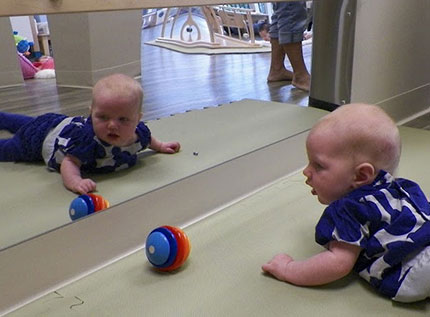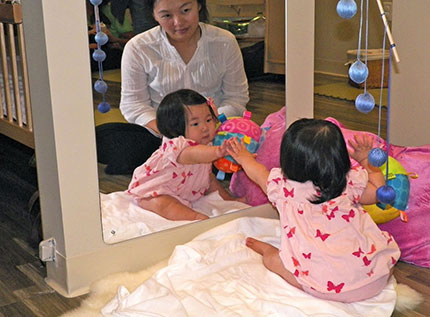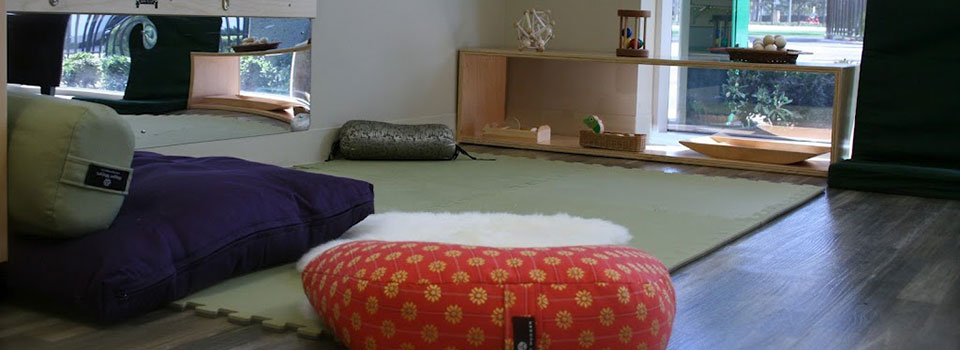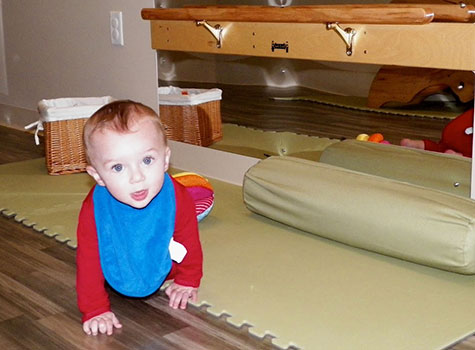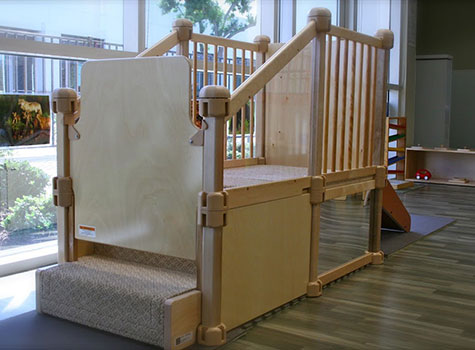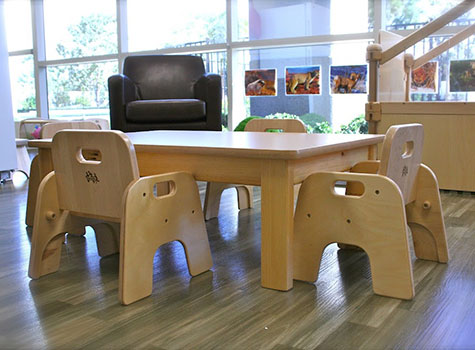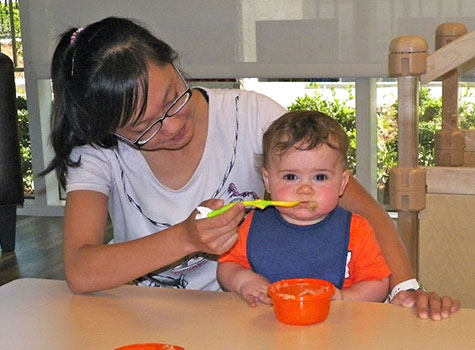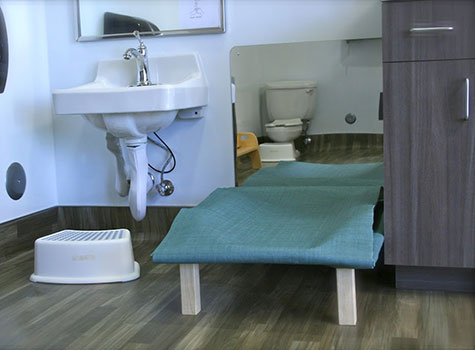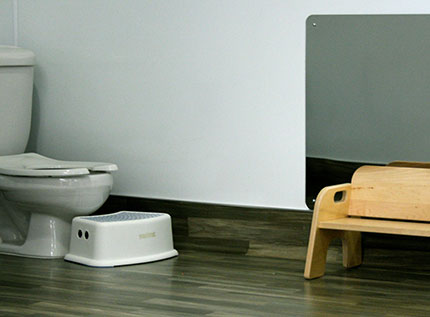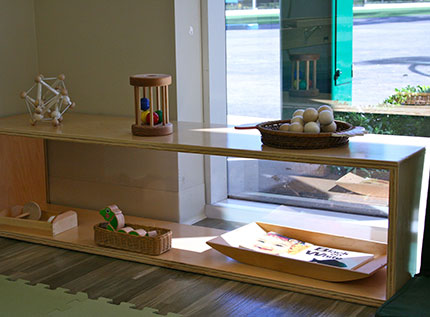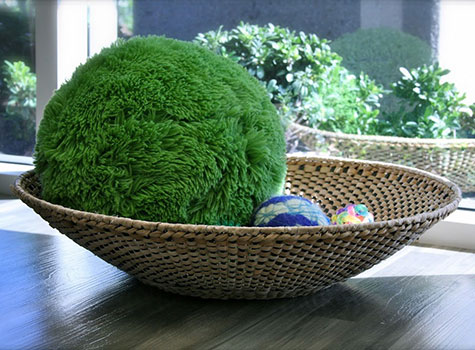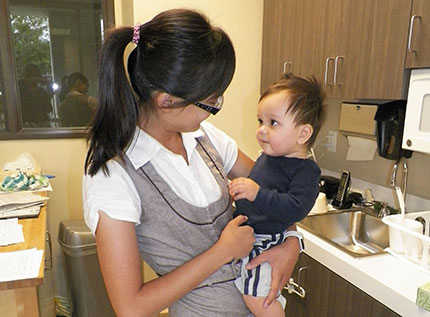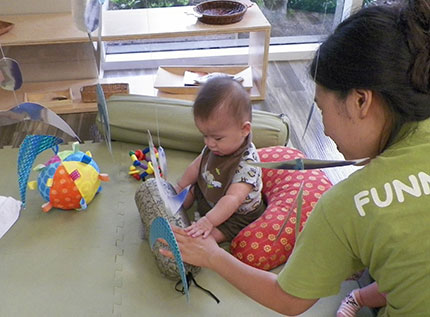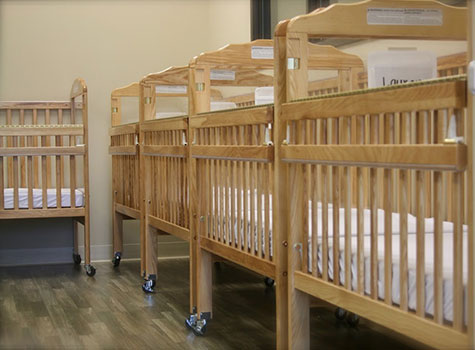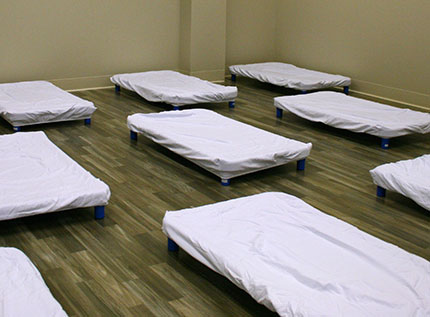Rituals and routines: the home/school connection
Dropping a baby off at daycare for the first time can be a very sad event for a mom or dad. After all, it’s a transition from being able to observe, experience and guide every aspect of your child’s life, to one where she’ll now regularly be away from you for hours at a time.
We know this separation is hard—probably harder for parents than for babies!
But we also know one thing that makes it easier: when we engage in frequent, detailed, two-way communication with parents, and see work with them as a partner rather than treating you as a mere client. To put it differently, our goal is to work with you to build a community around your child. At LePort Montessori, we simply have too much respect for the bond between parent and child to approach it any other way.
We are experienced experts in helping children thrive. We encourage you to see us as more than just a daycare, as as a resource to make sure your child has the best possible start. We want to be there to help you, not merely by offering daycare, but by being your partner. We want to keep you informed, to answer child-rearing questions you have, and to offer suggestions how to help your child at home, too.
Because we offer a Montessori infant program, our focus is on your child’s overall growth and well being as a developing individual, not just some delimited metric of growth in some specific area. This means that the home/school connection, and building a community on that basis, is central to what we do. Here’s the many ways we interact and communicate with parents who enroll their baby with us:
- Free home visits prior to the first day.
One of our trained teachers will come to your home for an (optional) home visit, before your baby starts his Montessori daycare experience with us. We want to understand your infant’s environment, so we can ensure a smooth transition. We also want to spend quality one-on-one time with you, so we can build a relationship, and answer questions you have in the privacy of your home. While we are with you, we may offer up ideas on how to align your home environments with the Montessori approach your child will experience in his class—and we’ll provide you with a free copy of a great little book, In A Montessori Home, so you can read up on simple changes you can make at home, too. - A carefully coordinated transition to school.
At some daycare centers, on the first day, you may come to the facility, drop your baby off, and depart for the day. Not so at LePort. We invite you and your baby to visit for an hour or so together. Then we’ll have him come for a partial day, and finally, for a full day when he’s ready. This transition allows all of us to get comfortable with each other. Throughout, we’ll communicate regularly – with quick phone updates, chats at pick-up, and photos we’ll email to you. - A daily written update.
Babies change so quickly, and so do their routines. Each morning, you’ll complete a quick report updating your child’s primary caregiver about his activities (sleep, eating, health.) Each evening, you’ll receive a form back with similar details, as well as with information on the supplies your child may need (diapers, underwear, sunscreen.) - An open-door policy and frequent informal communication.
As a parent, you are always welcome to visit your infant at our schools. We especially welcome breastfeeding moms on breaks, too. You can also have a quick chat with your child’s teacher at drop-off or pick-up, or schedule an after-school meeting with her at any time. - A weekly logistical email.
Every Tuesday, you’ll get a detailed email with updates about all upcoming events, deadlines and activities relevant to you child’s daycare experience at LePort Montessori. It’s a great way to stay on top of things like photo days, parent education events, holiday parties and re-enrollment deadlines. - Frequent educational information.
You’ll receive email updates, handouts, and blog links about infant development regularly, on topics from sleep training to toileting, from feeding to language development. You’ll also receive frequent emails with photos of your child in class through our Transparent Classroom parent communication system; often, emails will contain links to a description of what your baby does, so you can learn how he/she is, in fact, learning and not just spending the day in traditional daycare. Finally, we offer parent education nights at school four times a year: please join, as these are great opportunities to learn more about Montessori, and to see your child’s classroom from the inside. - Regular conferences and written progress reports.
Because we offer an education from the start, not just daycare, our infant teachers get together with parents twice a year for a formal conference. We also provide you with a written progress report that summarized your child’s development over the past year. - Parent-only school Facebook group.
Each LePort school has a private, parent/teacher Facebook group. This is where we regularly post photos from school, and where you can interact and form a community with other parents at your child’s school.
Think about LePort not just as a daycare option, but as a dedicated partner in your child’s early years. Together, in regular communication, we can help your child take his first steps towards growing into that happy, healthy, flourishing adult you will someday have the pleasure of knowing.

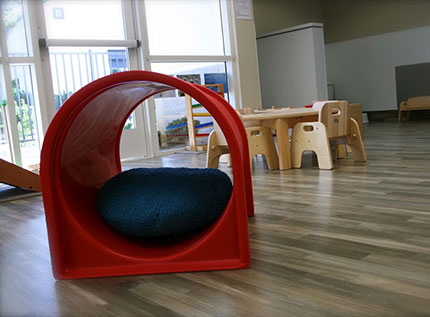
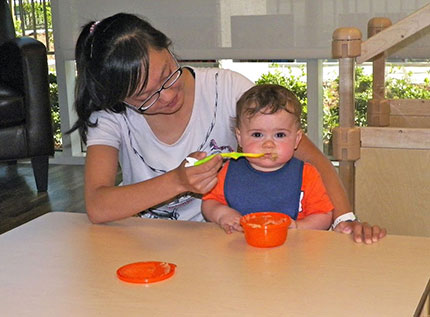
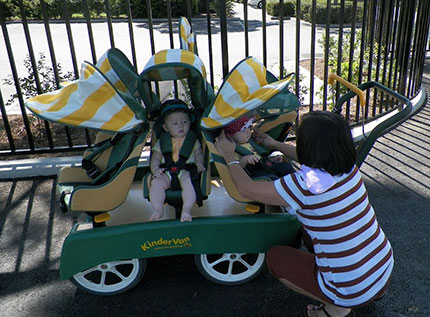
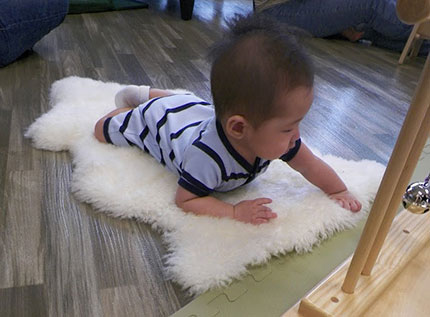
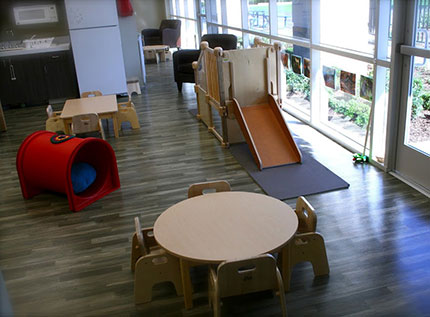
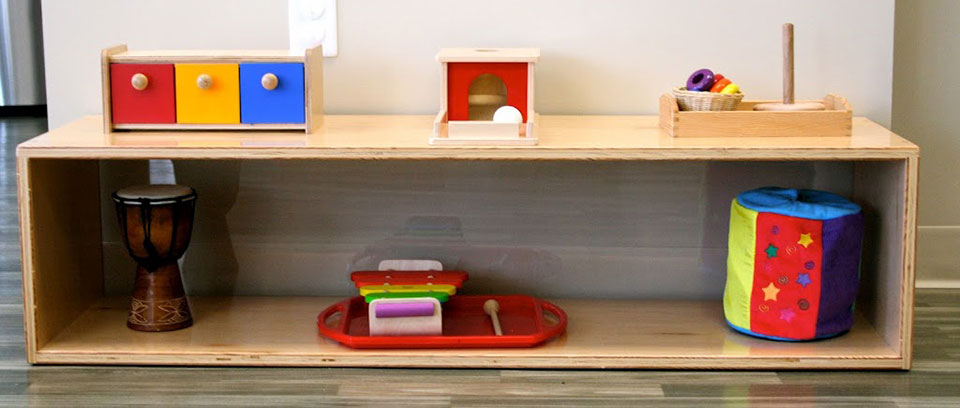 The first two years of life are also a “sensitive period” for order. Babies have a natural need to follow routines, to understand sequences, to know where things in their environment belong. As Montessori educators, we actively support your baby’s need for order: there is a special place for each material, and even children as young as 14 months delight in being able to put things back where they belong on the low, open shelves (something they rarely can do in other daycare settings, which often are cluttered, and have toys stored by staff in boxes or out of babies’ reach.) Our teachers are also masters at stimulating your baby’s language development. As Montessori educators, we know that the “sensitive period” for language acquisition starts at birth. Our teachers provide vocabulary at timely opportunities in response to their emerging interests: we observe and identify what your child focuses on (a blue mobile, a wooden chair, a soft, green, furry ball), and give her the language that goes with her interest.
The first two years of life are also a “sensitive period” for order. Babies have a natural need to follow routines, to understand sequences, to know where things in their environment belong. As Montessori educators, we actively support your baby’s need for order: there is a special place for each material, and even children as young as 14 months delight in being able to put things back where they belong on the low, open shelves (something they rarely can do in other daycare settings, which often are cluttered, and have toys stored by staff in boxes or out of babies’ reach.) Our teachers are also masters at stimulating your baby’s language development. As Montessori educators, we know that the “sensitive period” for language acquisition starts at birth. Our teachers provide vocabulary at timely opportunities in response to their emerging interests: we observe and identify what your child focuses on (a blue mobile, a wooden chair, a soft, green, furry ball), and give her the language that goes with her interest. 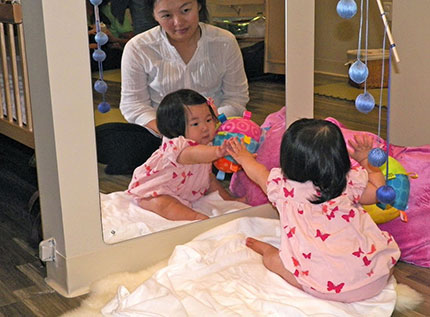 Regulations also require daycare staff to have 12 ECUs (early childhood education units.) Often, that’s the extent of the education and training you’ll find at daycare facilities. We again do not think that’s enough! Research shows that the education level and intelligence of your baby’s primary care provider have a huge impact on his intellectual, social and physical development. You know from your experience as a parent that you often need to think on your feet; that parenting is easier if you have a clear idea of your goals, and the approaches to childrearing you want to follow. That’s why each LePort infant room is led by a university-educated teacher who has also completed the rigorous one-year, Assistant to Infancy training at an AMI training center, or an equivalent MACTE-accredited training program. (In some cases, your child’s teacher may not have completed a degree and/or Montessori training program, but instead has been promoted from an assistant position, where they were carefully evaluated on a range of criteria, from expressive vocabulary to genuine warmth and caring for children. As part of their role, they are enrolled in and completing a training program.)
Regulations also require daycare staff to have 12 ECUs (early childhood education units.) Often, that’s the extent of the education and training you’ll find at daycare facilities. We again do not think that’s enough! Research shows that the education level and intelligence of your baby’s primary care provider have a huge impact on his intellectual, social and physical development. You know from your experience as a parent that you often need to think on your feet; that parenting is easier if you have a clear idea of your goals, and the approaches to childrearing you want to follow. That’s why each LePort infant room is led by a university-educated teacher who has also completed the rigorous one-year, Assistant to Infancy training at an AMI training center, or an equivalent MACTE-accredited training program. (In some cases, your child’s teacher may not have completed a degree and/or Montessori training program, but instead has been promoted from an assistant position, where they were carefully evaluated on a range of criteria, from expressive vocabulary to genuine warmth and caring for children. As part of their role, they are enrolled in and completing a training program.) 